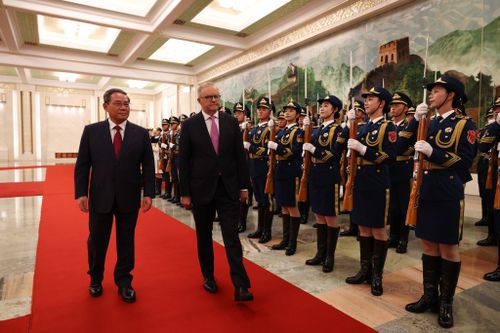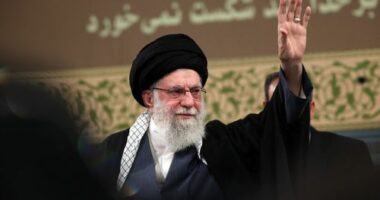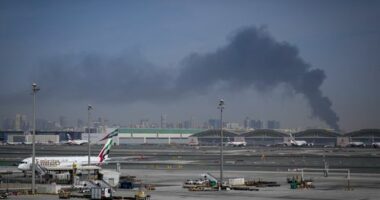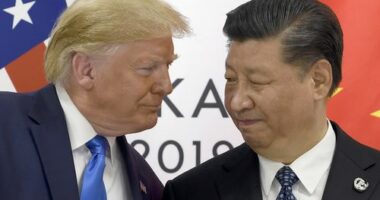Share this @internewscast.com
China has been significantly impacted by import taxes due to Trump’s push to prioritize American manufacturing, while Australia has largely been spared, except for some targeted duties.

Li said there was a greater need for China-Australia co-operation amid “headwinds” for economic globalisation and increasing “trade frictions”.
“The international economic and trade landscape is now experiencing profound and complex changes,” he stated at the Australia-China CEO Roundtable in Beijing last night.
“Destabilising factors and uncertainties are growing.”
Just last year, Canberra continued to urge Beijing to lift the remaining tariffs on billions of dollars’ worth of Australian exports, which were imposed in response to Australia’s push for an international investigation into the origins of the COVID-19 pandemic.
But last night Qiang was highlighting the “fairly strong resilience and vitality” of the Australia-China trade relationship “despite some twists and turns” and calling for even more co-operation and trade.
“Protectionist measures are on the rise in the world, and China and Australia are committed to advancing trade and investment liberalisation and facilitation,” he said.

Earlier in the day, political analyst Simon Jackman told Today China’s approach sent a signal to Australia: “Hey, we’re a safe pair of hands compared to your, hitherto, number one strategic partner and ally of the United States.”
While Australians still widely view the US as a more trustworthy partner than China, the gap between the two superpowers has narrowed dramatically in Trump’s second term.
The Lowy Institute annual poll released last month found trust in China had increased three points to 20 per cent while the US plummeted 20 points to 36 per cent. Just 16 per cent of those surveyed said they had “a lot” or “some” confidence in XI, compared to a quarter for Trump.

Albanese hailed a doubling of Australian exports to China in the 10 years since a free-trade agreement was signed and the “boost” to exporters from Beijing’s tariffs being dropped.
He said it was important for the countries to “learn from shared successes” but “plan for common challenges”.
“This gathering will send a very important message back to Australia about the significance that we place as a government in this engagement and collaboration in the interests of both of our nations,” he said.

“But also, I think it’s fair to say, in today’s turbulent world, in the interest of global economic activity as well.”
Business Council of Australia chief executive Bran Black said it was significant that the event, hosted by BCA and the China Development Bank, was being held in Beijing for the first time since 2016.
“We want to see more trade, more Australian jobs, and a real future for Australian products in China – from decarbonisation of steel, to beef and rice products – and that was reflected in our discussion here in Beijing,” he said.
“One in four Australian jobs is trade dependent and so it is vital we increase trade opportunities with all our trading partners, including China.”











